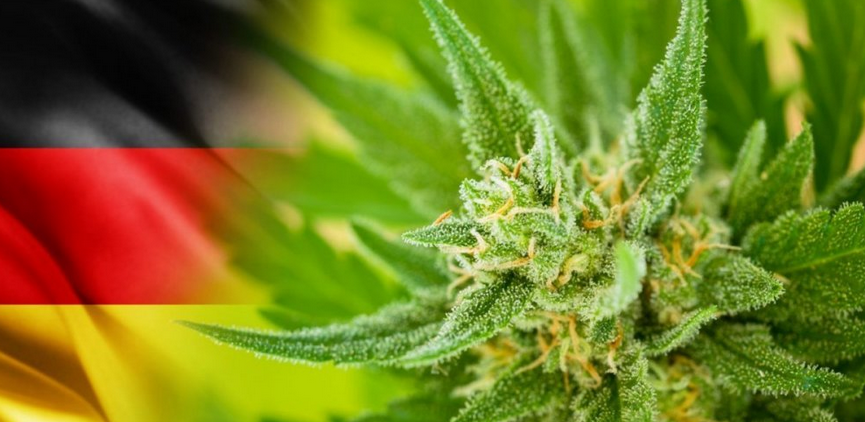Cannabis Status in Germany in 2021
In March 2017, Germany officially legalized medical cannabis. Recreational use of marijuana has also been decriminalized, but visiting coffee shops in the country is still not possible. Here’s an overview of the current status of cannabis in Germany.
Medical Marijuana Legalization in Germany
Marijuana has properties that allow it to treat a range of diseases and alleviate their symptoms. This includes serious or incurable illnesses such as cancer, multiple sclerosis, Alzheimer’s disease, epilepsy, AIDS, and others. However, it also has significant psychoactive side effects, which continues to spark debate among scientists about the appropriateness of using marijuana-based treatments.
Nevertheless, many countries around the world and in Europe have already legalized medical marijuana. Germany joined them in March 2017. Now, medical marijuana can be purchased at German pharmacies, but only with a prescription. Over-the-counter products are only available if the THC content (the substance responsible for the psychoactive effect) does not exceed 0.2%.
Important Note! Before the legalization of medical cannabis, only a handful of seriously ill patients—fewer than a thousand people across Germany—could access it, and they had to pay for treatment themselves. After the relevant legislation took effect, doctors gained the ability to prescribe medical marijuana to all patients who truly need it, and the costs can now be covered by health insurance. This allows insurance companies to monitor the legitimacy of prescriptions, which many see as a positive, as it reduces the risk of abuse and violations of medical ethics.
Marijuana Use in Germany: Legal Perspective
While the situation with medical cannabis is clear, many people wonder: Can you smoke marijuana without a medical reason, and is there any criminal penalty for doing so?
Currently, smoking marijuana in Germany is decriminalized, and there is no criminal penalty for having a joint. Police do not pursue ordinary users to fine or charge them. Law enforcement focuses on smugglers and dealers of marijuana and other drugs in large quantities.
It’s important to note that it is still not possible to legally buy marijuana for personal use in establishments like coffee shops. Private cultivation, even for personal use, is also prohibited. As a result, those who use light drugs often rely on trips abroad (such as to the Netherlands) or gifts from friends who travel. However, this should never involve large quantities.
Important! Each federal state in Germany has its own laws specifying the small amount of marijuana you can possess without criminal consequences. This “small amount” varies significantly by region, so it’s important to be aware of local laws when traveling within the country. For example, in Berlin, you can possess up to 15 grams for personal use; in Munich and Brandenburg, up to 6 grams; and in the northern state of Schleswig-Holstein, up to 30 grams.
Public Attitudes
There have always been many supporters of full legalization of light drugs in Germany. Evidence of this is the annual Cannabis Parade in Berlin, which has been held for over 20 years. Slogans include “We want coffee shops!” and “Legalize worldwide!” Even before medical marijuana was legalized, there was already a single legal marijuana plantation in Germany, located in the Berlin Marijuana Museum, founded in 1993 by the Cannabis Parade Union. The Federal Institute for Drugs and Medical Devices granted permission for cultivation strictly for educational purposes. This mini-plantation is heavily guarded, including video surveillance, and the annual harvest has always been destroyed.
Modern Germany still lacks a unified opinion. Regions can be roughly divided into more conservative areas, where most residents oppose even medical marijuana, and progressive regions that support full legalization of light drugs. The latter see legalization as a way to address existing addiction problems and as a new source of budget revenue.
What solutions are seen for addiction issues? According to various studies in 2019, after the decriminalization of marijuana smoking, the following changes were observed: the number of young people (ages 18–26) using marijuana tripled (with Berlin leading in consumption); the use of hard drugs dropped significantly; and tobacco and alcohol use reached their lowest levels.
Interesting Fact
A few years ago, the German Criminal Police Officers’ Union (BDK) supported the legalization of cannabis use, possession, and sale. Its chairman, André Schulz, made a detailed statement highlighting several factors in favor of legalization, including:
- The historical ban on cannabis is outdated and has proven ineffective in modern times.
- The current system stigmatizes people and makes them criminals for minor offenses (i.e., personal marijuana use).
- The underground criminal structure profiting from marijuana gains huge resources to finance more serious crimes, including terrorism.
Support for marijuana legalization from the German police is unusual even by international standards. This best illustrates the diversity of opinions and attitudes on this issue within German society.



